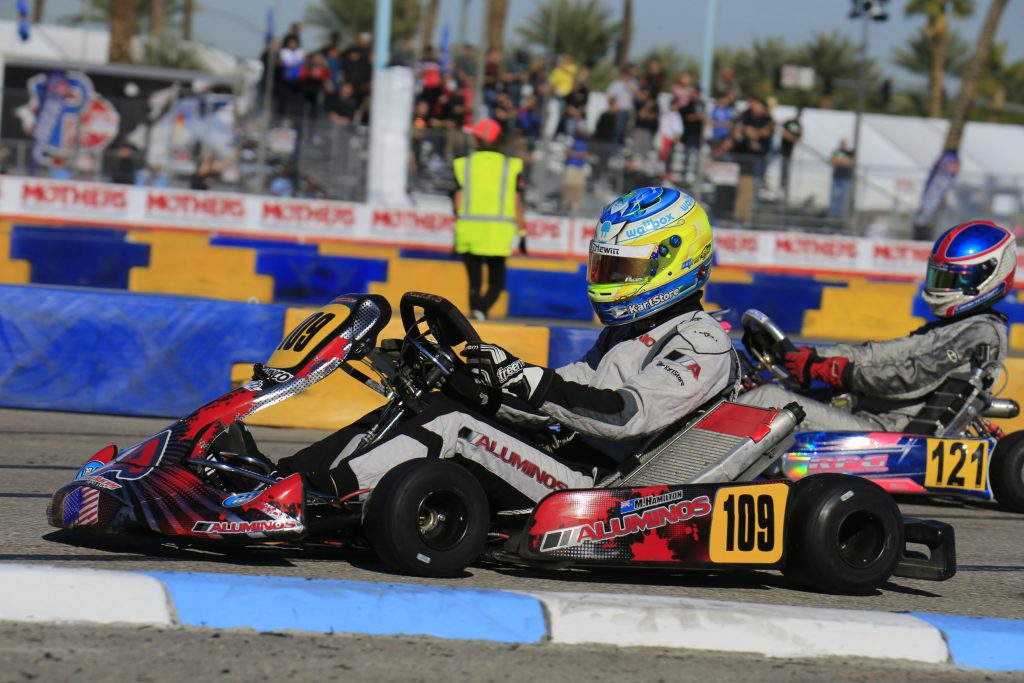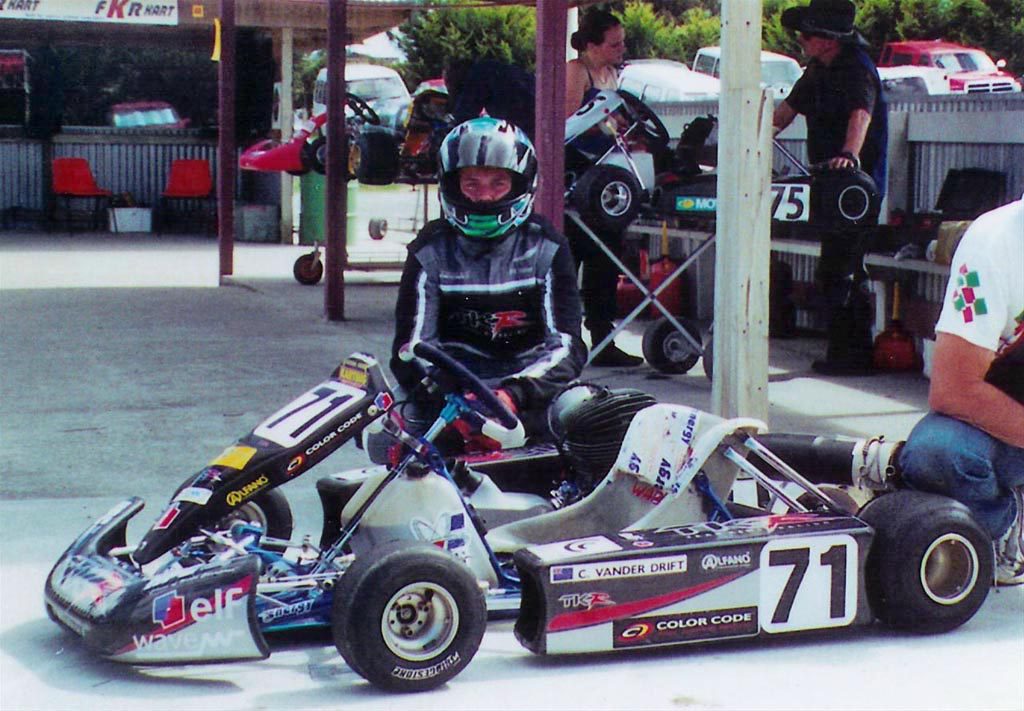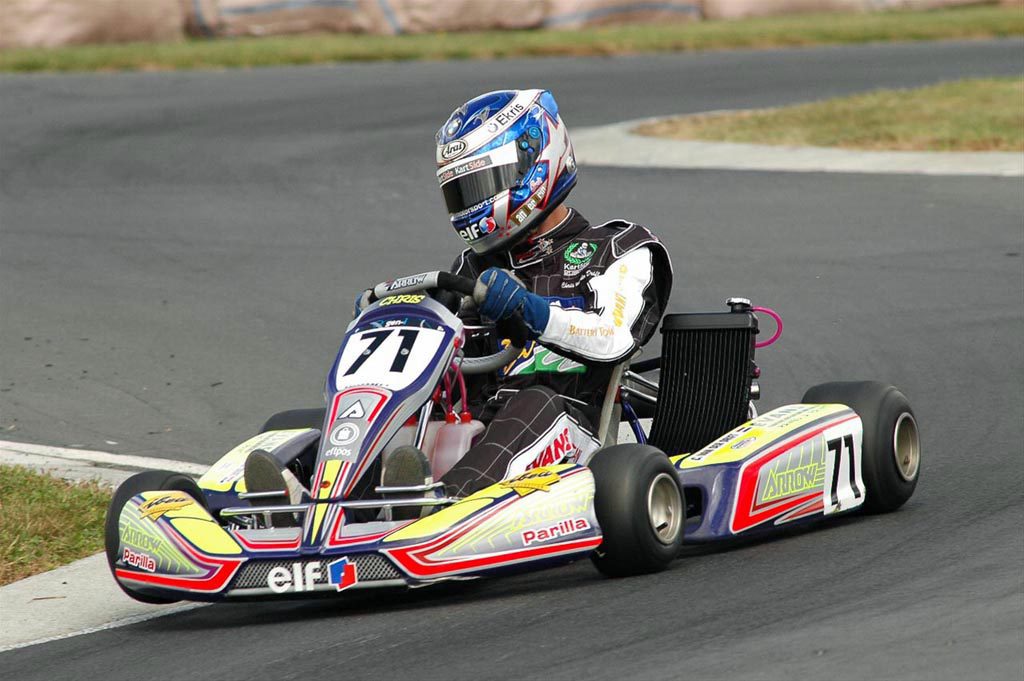Debate in recent weeks has grown heated. Or at least warm. The release of MotorSport New Zealand’s strategy doc and evaluation of the separate career ladders for circuit and gravel are of interest to all licence holding members, not least because you guys all paid for the work to be done.
Being non-controversial this week, I thought a look at karting might be informative. After all, it’s been the foundation category for our motor racing stars since God wore short pants.
The Porter Group karting at Hamilton over Easter was my prompt to re-look at work done in the past on the appeal, benefit and value of karting. Let’s use a microscope instead of rose tinted glasses and delve into the most influential single race category in New Zealand – and worldwide.
None would dare suggest Kiwi racing is in anything other than a golden age. Over the past 3-5 years we have had world champions, winners of iconic races, drivers in every major category across the globe except NASCAR. Not bad for a nation of 4.5-5.5 million people.
Focus the microscope more and yes, there is a definite link between the careers of the Hartleys, Bambers, Evanses, Pithers, van der Drifts and others.
The answer is karting. Here and overseas, it has long been seen as the essential first step on the career ladder of any aspiring boy or girl looking to carve a motor racing career.
KartSport is the governing body of kart racing in New Zealand, affiliated to Motorsport New Zealand with the sole delegation from the FIA to organise the sport in New Zealand. It works directly with the CIK-FIA which controls most international karting and organises the FIA-CIK World Karting Championships.
Every weekend of the year, a graduate of the Kiwi KartSport scene is racing – or preparing to race – somewhere in the world. Kiwi Wade Cunningham won the world championship in 2003 and Daniel Bray and Marcus Armstrong have been contenders.
But Rob Hutton of KartSport New Zealand also challenges enthusiasts to see karting as a fully functioning sport in its own right. He points to the hundreds of racers who rise through the ranks from the schools competition and are still dedicated to karting competition in their adult years.
With 1040 members nationwide and 840 competition licence holders as at 2017, he has a point. Membership statistics show racers around the country from 6 ½ years old all the way to 65. The sport signs up 200 or more new racers every year, but does struggle with retention as drivers slip away – mainly into the open-wheeler categories.
KartSport’s total membership peaked in 2005-2006 at 1350. Membership these days is once more on the increase.
The sport runs up to 240 race events a year. Members compete on the 19 tarmac circuits around the country or in the case of the high output Superkarts they race at MSNZ circuits, while others are racing offshore. In the 2016 calendar year 5.2 per cent of Kiwi karters were issued with international licences/visas. Most weekends there are Kiwis racing somewhere in the world – Australia, Europe and North America.
Like motorsport’s mainstream cadre, karting has its own elite nursery of talent: the Kartsport academy is a hands-on affair and uses current and recently retired racers to coach and mentor the next crop of young stars. Hutton says KartSport is revamping the academy to further enhance the coaching being provided and to help upskill parents, who these days often have little motorsport or mechanical background but are of course each driver’s pit crew in their formative racing years.
KartSport’s biggest challenge is to cause a perception shift among the motorsport public – and media.
From Rob Hutton’s viewpoint, the category is a nursery for not only KartSport in its own right but also for a lot of drivers who move on to other four wheeled motorsport disciplines.
He wants enthusiasts to understand that for many, karting is the career itself.
Perhaps now is the time for the motorsport and kartsport to move closer together and make more permanent linkages with the aim of enhancing the experience of our rising stars.
The mission
Some of the pressures the sport faces are common to most organised sport, including:
- – changing lifestyles
- – increasing pressure on leisure time
- – new health and Safety regulations placing increasing pressure on volunteers
- – wider sport options for young people
Others are more unique to karting and include:
- – the lack of a world class racing facility in Auckland
- – housing density changes which mean many no longer have room at home for a karting trailer and workshop
- – noise restrictions which are pushing karting tracks out of urban areas
Karting hall of fame
So let’s take a look at karting and its influence on some of our own rising race stars. Names chosen at random, starting with:
Scott Dixon
Australian-born but Kiwi to the core, Dixon cut his teeth at the Mt Wellington kart track. He first raced there aged seven and continued into the early 1990s, recording 30 major wins in New Zealand and Australia.
His career since has run from karting in the 1980s through Formula Vee, Formula Ford and Formula Holden in New Zealand and Australia. He won the Australian-based Formula Holden championship for Formula 3000, New Zealand Formula Ford Class I championship, New Zealand Formula Ford Class II championship and New Zealand Formula Vee championship (age 13).
1999 was the start of big things – granted an Indy Lights opportunity by Johansson Racing, he was fifth overall and second in the rookie title standings.
He was back the following year to win outright.
Dixon holds the distinction of being the winningest active Indy car driver with 44 victories and is currently ranked third on the all-time Indy car win list. In addition, he ranks third on the all-time list for most consecutive starts with 224 straight Indy car starts dating back to the 2004 race in Michigan.
The New Zealand native has 287 starts between the CART and Verizon IndyCar Series, producing 44 wins, 26 poles, 141 top-five and 204 top-10 finishes (2001-Present).
Like a lot of drivers, Dixon still has a soft spot for karting, turning out for occasional fundraiser events. As late as 2007, he was still racing karts – in the interestingly-named Mazda Robopong 200!
Craig Baird
Started in karts at just four years old, and won his first karting title a year later. In 1981 he was national sprint champion (midget class).
Since then he has competed around the world – including the Bathurst 1000 and the gruelling Nurburgring 24-hour Endurance event – and amassed a record-setting 23 National Championships in New Zealand and Australia making him indisputably Australasia’s most successful racing driver in current motorsport competition.
Four NZ Grand Prix wins. A hat trick of Formula Pacific Championship titles. Four in a row in New Zealand Touring Car Championship titles with BMW. And that’s before we start into his Porsche exploits. Baird is the most successful Porsche racer in the world, with the most championships to his name.
Surprised by that? Count championships won: Beyond Australia and NZ, Baird has also established an impressive record of international success in single-seater, sports cars, touring cars & Porsche racing in Malaysia, the Middle East, United Kingdom, South Africa, America, Europe. He was season champion of the 2006 & 2008 Australian Carrera Cup and series champion of the New Zealand Carrera Cup for four consecutive years between 2005 & 2008.
Matthew Hamilton

Between 2001 and 2019 Hamilton has raced karts for ten years; putting the other eight years into (mainly) single-seaters and touring cars. His first major karting win was in 2001 and he has raced full-sized single-seaters up to Indy Lights level.
Winner of the prestigious Lady Wigram Trophy in 2006, Hamilton raced three seasons of the Toyota Racing Series.
He contested and won the MINI Challenge in 2010.More recently he even had a crack at the Toyota 86 Championship, showing a turn of speed that quickly netted him a respectable points tally.
Returning to his roots – or perhaps never having left – Hamilton has taken a string of top results including victory in last year’s Rotax Max Challenge (DD2 masters class). He remains one of New Zealand’s biggest karting talents, runs the WKS kart shop, and is a driver coach with KartSport NZ.
Karting career highlights include:
- – Winning 13 New Zealand Sprint Championships
- – Las Vegas Supernationals winner S4
- – All Japan Yamaha Champion
- – Third at the Rotax Grand Finals 2009 & 2010
Chris van der Drift
We still reckon van der Drift is one of Kiwi motor racing’s least appreciated talents – in or out of a kart or car. Like Andy Neale, he has the right temperament to work with rising race drivers and at the same time the cool killer instinct that wins races.

A couple of his notable kart results: 2001 sprint titles, 100cc junior Yamaha and Junior intercontinental A. 2001 CIK Trophy of New Zealand (Auckland) Junior intercontinental A. Six years later, in between European full-size campaigns, he jumped back into a Formula 100 kart and was second at the CIK Trophy of New Zealand – another of those drivers who can switch effortlessly between cars and karts.
In cars? Where to begin. Have a look at his driver profile here. He raced TRS in 2006 and then used that in the manner intended to springboard into Formula Renault , finishing second in FR NEC and also in FR Eurocup. He won the International Formula Masters in 2008 and then finished seventh for Team New Zealand in the 2008-2009 A1GP.

In 2010, van der Drift escaped major injury in a Superleague Formula crash at Brands Hatch. How many could turn this kind of traumatic smash around and calmly go back to racing? Oh, and finish fourth in the championship fr his team, Olympiacos. This guy has true grit.
But it’s the Porsches that have given him greatest rewards. Jumping with both boots into the Carrera Cup global competition in 2015, he was second in the Cup’s support race at the Spa 24 hour. He also won Porsche Carrera Cup Asia in the same year. In 2017 he repeated his Porsche Carrera Cup Asia win, won the Porsche Invitational race at Sepang in Malaysia and was second in GT3 in the China GT Championship driving a 911 GT3.
The next year he was second in the China GT Championship and won Carrera Cup Asia again. Yep, again.



Comments